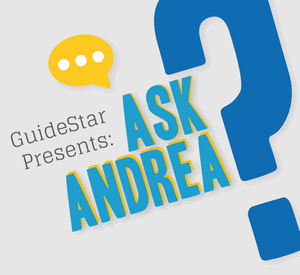I keep trying to make sense of what happened to Michael Brown on August 9, 2014.
Some powerful concoction of anger, pride, racism and fear came together in an awful brew that left young Michael dead on the street.
It was with thoughts about this tragedy swirling in my mind that I walked over to St. Mary’s Park for my morning exercise.
A Young Man Behaving Foolishly
St. Mary’s is a park where young and old people of many colors and languages come to exercise.
People of every age, size and ethnicity walk and jog and run on the track, moving from lane to lane and passing one another depending on their speed. It’s not exactly crowded, but it’s far from empty.
So, this morning, as I was finishing my second mile, I was surprised to see young brown-skinned man of 16 or 17 ride his bicycle onto the track. Fast. He raced around the track cutting in and out of the walkers and joggers. Clearly a dangerous thing to do.
One of the regulars grumbled to me as I passed him, “Where are the police when we need them?”
When the cyclist came around again, I couldn’t stop myself. “Hey there”, I called out, “It’s a lousy idea to ride your bike on the track. It’s dangerous.”
Meeting ‘Attitude’ with Concern
The young man looked surprised and immediately wheeled off the track.
But a minute later, he was back and with an attitude. He stopped his bike a few yards away and called me over.
It struck me that it was just this kind of situation that started Michael Brown and his killer down the wrong path. Michael Brown was a young man walking down the middle of the street where he didn’t belong. He was strutting his stuff and being told not to. And so was this young man.
“I ride here all the time,” the cyclist said belligerently, “and no one’s ever told me to stop before.”
From his tone, I suspect he was thinking, “Who do you think you are, white lady, telling me what to do?” But he didn’t say that.
Hurt Pride and Anger
The young cyclist was angry. His pride was hurt. And he wanted to have his say.
I walked over to him and restated my concern. “Listen”, I said, “I have nothing against you or your bike, but riding on this track is just too dangerous. It’s dangerous for you and for the people on the track. I would so appreciate it if you didn’t ride here.”
I didn’t say, “I’ll call the cops if you do it again.” I didn’t say, “What do you think you are doing.” I didn’t raise my voice or roll my eyes or tell him he was stupid. I just explained my concern and asked that he not ride his bike on the track.
In a minute the young man’s anger fell away. To my surprise, he extended his hand to me, told me his name and said he was sorry.
Then he got back on his bike, said “I’m sorry” again and waved as he rode off.
I wonder if young Michael Brown would be dead now if the policeman had asked him to get out of the middle of the street with respect rather than scorn.
Try Being Respectful
No one likes to be disrespected, regardless of their color, gender or age.
The next time you are tempted to disrespect someone — to roll your eyes or make a snide comment out of anger — don’t. Find a way to state your opinion that’s respectful of the other person. I promise you, the results will be better.
Have you ever been disrespected by someone else?
What happened? How did it feel? And how did you react? Share your story in the comments below.

Andrea, thank you. Yes. Yes, about Michael Brown. Yes to this approach. Yes to the love behind this post. I’m going to share it as a comment to one I wrote on Ferguson. Thank you again.
Thanks Beth. How nice of you to comment. With so many guns in the world, it’s harder and harder for people to intervene without feeling afraid. And so we grow farther and farther apart. I’m still smiling that my young cyclist shook my hand and apologized! Wow. That was worth the risk.